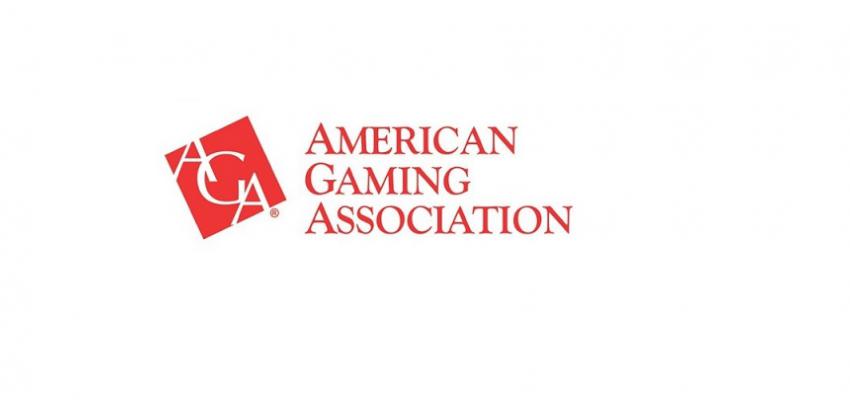
Peter White Chats to Cait DeBaun, Senior Director, Strategic Communications & Responsibility at the American Gaming Association about the Responsible Gambling Collaborative
In mid-April of 2018, the American Gaming Association announced the formation of the Responsible Gambling Collaborative. Its stated mission is to “identify the programs and policies that best address responsible gaming and the prevention of problem gambling and hold government accountable for supporting proven, effective solutions.” The RGC goal was to lobby for the proper allocation of governmental resources, preferably toward programs of proven efficacy. Participants range from Harvard University and the Yale School of Medicine, to the National Indian Gaming Association and the Association of Gaming Equipment Manufacturers. Quite a prestigious line up.

Keith Whyte, a recognized authority on disordered gambling and executive director of the National Council on Problem Gambling lauded for “its diverse set of stakeholders,” calling the Collaborative “a unified approach to addressing problem gambling.” The ongoing work of the Collaborative includes reviewing current responsible gaming regulations, examining the underlying and evidentiary premises of those regulations. The first major fruits of the Collaborative’s work were born early in 2020, when the AGA laid out a set of responsible-gaming best practices, a move widely hailed in the gaming industry. As International Center of Responsible Gaming Executive Director Russell Sanna put it, “No one party or way of thinking is ever enough to create transformative change. That’s why this group is so essential.”
What were the compelling reasons behind the formation of the Responsible Gambling Collaborative?
The Responsible Gambling Collaborative, established in 2018, is working to chart a new course on the complex issues of responsible and problem gambling. The collaborative, bringing together academics, researchers, problem gambling advocacy groups, and gambling industry organisations, is the first group of its kind in the United States and the AGA is proud to be a founding member.
What key areas of problem gambling prevention does the RGC support and why?
At the start of the year, the RG Collaborative released new Effectiveness Principles that identify areas of exploration for regulators, policymakers, experts, advocates, and other stakeholders to find the best solutions to promote responsible gaming (RG) and prevent problem gambling (PG).
Importantly, the principles call for funding of RG research and problem gambling treatment, robust responsible gaming resources for customers, and business practices that encourage responsible gambling. The principles ask the question, how can we collectively advance responsible gaming and problem gambling efforts?
Education of the public about gambling is important as although for the vast majority it’s a fun pastime, it creates financial hardship, how is the RGC assisting with raising the profile of responsible gambling?
It’s hard to discount the unique nature of this group. You could argue the very convening and work of the RG Collaborative elevates the conversation around RG in the U.S. I don’t know of a comparable body in the global gaming industry.
Our work will continue to raise the profile of RG and PG while answering questions outlined in the principles. This past month, in direct support of the Effectiveness Principles, we researched whether funding allocated for RG and PG from states’ gaming tax proceeds are appropriately spent as they are designated. This is an important step toward holding states’ responsible gaming efforts to a higher standard.
Does the RGC have much contact with the gaming operators land based and online?
The Responsible Gambling Collaborative is made up of leading gaming industry organizations, academic professionals, and advocacy groups. Many gaming operators are part of these groups, including the American Gaming Association, the Association of Gaming Equipment Manufacturers, and more.
Will the organisation look to partner with other similar organisations in other countries?
Consistent with our goal to promote the most effective responsible gambling practices, the Collaborative is very interested in studying proven models for addressing problem gambling, whether across the United States or in other countries.
The American Gaming Association has a lot of research on responsible gaming initiatives, will the RGC look to collaborate with the AGA on research and education campaigns?
Absolutely. The AGA is committed to fostering responsible gaming and addressing problem gambling head on. Also to ensure that patrons play responsibly and those who may need help have the resources they need. We are proud to be a part of the Responsible Gambling Collaborative to advance these important efforts.
Representation at conferences and exhibitions is an important way for organisations such as the RGC to raise its profile. What events, either an exhibition booth or speaking roles, are you planning to attend in 2020?
I’m glad to see the heightened focus on responsible gaming at industry conferences. In fact, the RG Collaborative released the principles and state funding research at the National Council of Legislators from Gaming States Winter Meeting. We will continue to seek these opportunities, and, at the same time, encourage all stakeholders to see RG as central to any discussion of gaming today.
Do you think the Gaming industry needs to financially invest more in organisations such as the RGC than they are currently?
Ensuring that research and evaluation, as well as problem gambling treatment, are adequately funded are the first and second Effectiveness Principles. As the one of the main beneficiaries of gaming revenue, the Collaborative’s recent research shows that we need to ensure that states are utilizing designated responsible gaming funding for its intended purpose.
What else would you like readers to know about the RGC?
What the RG Collaborative is doing for responsible gaming is truly remarkable. By bringing diverse voices together, we are able to advance these efforts in ways that it has never been before. The AGA looks forward to working alongside this Collaborative to build upon the principles and chart a unified approach to responsible gaming for the future.

